Interview: Rebecca Thomas, director of Electrick Children

Interviewing Rebecca Thomas, director of Electrick Children, I found the first time director very amiable, and not at all intimidating. Her honest answers are incredibly insightful.
Rebecca, thank you for seeing me! I understand you are a Mormon, like the main character Rachel in Electrick Children. Did you have a similar upbringing? If not, did you have to research the ways in which fundamentalist Mormons are brought up?
Well, I was raised Mormon in Las Vegas, not fundamentalist version but more of a mainstream version so I didn’t have a Mormon lifestyle; I went to a normal school, ate regular food, watched TV – a normal lifestyle – but I did have these commandments to live by, and a church to go to on Sunday. Las Vegas is really close to Utah where my grandparents lived, so I would go and visit them and we would go to the grocery store together and in the aisle I would see these weird people dressed up in these weird clothes and I would be like, “Who are these people?” and my grandparents would tell me those were fundamentalist Mormons, like a really small sect. So when I did my undergraduate work, I made a documentary on fundamentalist Mormons, I met lots of them and I realised there was an overlap in our religion. I was able to use the documentary for my research.
I loved the innocence of the film – but I am totally intrigued as to whether the storyline is inspired by anyone in particular, or your own experiences, or even your thoughts about breaking free from the Mormon community?
I definitely felt bound when I was younger. I haven’t been active recently in my life, but I was active – I went on a Mormon mission to Japan and I loved it – so it’s not like anything in my life but the feeling of being a teenager, coming from a very strict community and trying to grapple with the world, you know, like liking a boy or having a crush; or someone liking you and you not understanding what that is; or understanding certain decisions your parents make for you… It that was something I could relate to, just as much as anybody else, but in this very specific way because of the religion.
When you wrote the script, did you have any actors in mind? And what drew you to Julia Garner as Rachel and Billy Zane as her father?
I wrote the script with no one particular in mind. We had a casting director and Julia Garner came on really early, five or six days before production! I had cast a girl, then fired her, cast another girl, then fired her…I had a really bad feeling! Julia had to carry the whole role, you know, if it was wrong then you would be following a crazy girl – not somebody who you would actually want to relate to and care for. So I would tell the actors, you know, “I am looking for someone”, this kind of girl who is meant to be virginal but bold, innocent but you like her, attractive but angelic. I got the recommendation from an actor that Julia Garner was that perfect fit, a little less experienced than others, but that she really fitted the description. Five days before production, I got an audition video from her and she was great, so I flew her out to Utah, put a costume on her, and she walked out onto set and just did miraculously – she was great!
Billy Zane, officially, I hadn’t even considered Billy because like you said, he has a very Hollywood type of filmmaking, and this is a small Indie drama type-of-thing and I didn’t think he would be interested, but my casting director knew him really well and he said, “No! I think Billy would really like this!” so I sent him the script and he was absolutely lovely! He said he loved it; and we met. He’d recently become a father to a daughter who he absolutely adores, so he was like, “Polygamist dad? Yeah, I can do that – no problem!”
What was the difference between directing a new actor like Julia Garner, compared to an established actor like Billy Zane?
I was so nervous with all the actors – actors frighten me! [Laughing] I love them, but they are scary! Err, well Billy versus Julia, is like in the first scene where I am working with someone who has as little experience as Julia, and she has to deal with someone who has all this experience, and I think listening is the key. In either case, I would always listen to what the actors have to say and just deal with them, you know, differently. Billy did his own thing and I would be like, “What about this?” and he would say “Ok!” and he would just try different variations of things. Where as Julia would just do her thing, I would send her completely in the opposite direction and she would move just a little bit. So, you know, every actor works differently just like every person is different. It was a good learning experience for me, definitely.
Who inspired the names of the characters?
Well, my siblings did! Rachel is named after my sister and Mr Will is named after my brother who we used to nickname Mr Will. I thought the names would fit those two characters. The rest of the names are just sort of names that I like. But those two characters are so dear to me that I named them after my brother and my sister.
The difference between a fundamentalist Mormon and the 21st Century has made for amusing viewing with the skater boys referring to Rachel and Mr Will as “prairie” people. Was the comedy aspect intended? And is it something you have come across as a Mormon yourself?
Yeah, I think because people have pre-conceptions of you, which can be negative, but also it can be nice because you can surprise them, which is always nice to say something and get closeness from that. The comedy aspect was definitely deliberate: when the producer who financed the movie came up, he was always giving me notes: “You need to make this funnier”, and I was like “I think it’s funny!” I always intended it to be funny. I feel like I can’t help but see the world in that way; at least in an awkward funniness, and also in a down-right fish-out-of-water type of “this girl lives in this crazy environment” – that’s interesting right? I could laugh at that! I like to laugh at myself.
Was it important to you that the storyline kept away from darker aspects such as how Rachel got pregnant? And how did you direct the film to keep it naïve and innocent?
In some earlier iterations of the script it was much darker, and it was more of an objective take on the whole thing. I started by showing more of Rachel subjectivity, and it became lighter, and we sort of saw the world through her eyes, so naturally the directing grew out of the writing. So we see the world how she sees it; she doesn’t really see the darkness yet, even with her own pregnancy, she doesn’t know if it was method-conception or something else – and we just see what she sees. Rachel completely believes it’s Immaculate Conception and sees the world as this sort of place that’s like this big opportunity to her. She finds people who are good, or maybe she instils goodness in other people, so you are right, it does stay light and away from the dark.
What was it like filming in the desert? Were there any memorable problems that arose?
Ooh! It was interesting… There was no running water or electricity, so we had to drag all that out to the middle of Zion National Park in Utah! There were bats; I think on the first day we had to leave the set – the bats were flying crazy in and around it!
The second day a storm came in and lightening struck the middle of our set, sending a few people back a couple of metres; [it was] really intense, making me think “This isn’t going to happen!” and that we weren’t going to be able to make the movie. But eventually the weather worked with us a little bit and we got what we needed, and of course the locations are gorgeous! The clouds look beautiful even when they are dark.
Do you have any advice for upcoming film directors or writers?
Yeah, I think the first thing, just doing it, is the most important part. You don’t have to be the best, but you definitely have to do it, if you want to succeed. What I think is important is, when I was at film school I studied the masters, to watch the films that are being made currently. Firstly, the independent films are the films you want to make, because people are doing very interesting things and telling quite different stories; I think that inspired me to make what I wanted to make, even if it doesn’t fit, or whatever. I think it is important to watch the new stuff and see what’s around.
Lovely, thank you Rebecca! I hope you enjoy the rest of your stay in London!
Jennifer Atkinson
Electrick Children is released at selected cinemas in the UK on 13th July 2012. Read our review here.


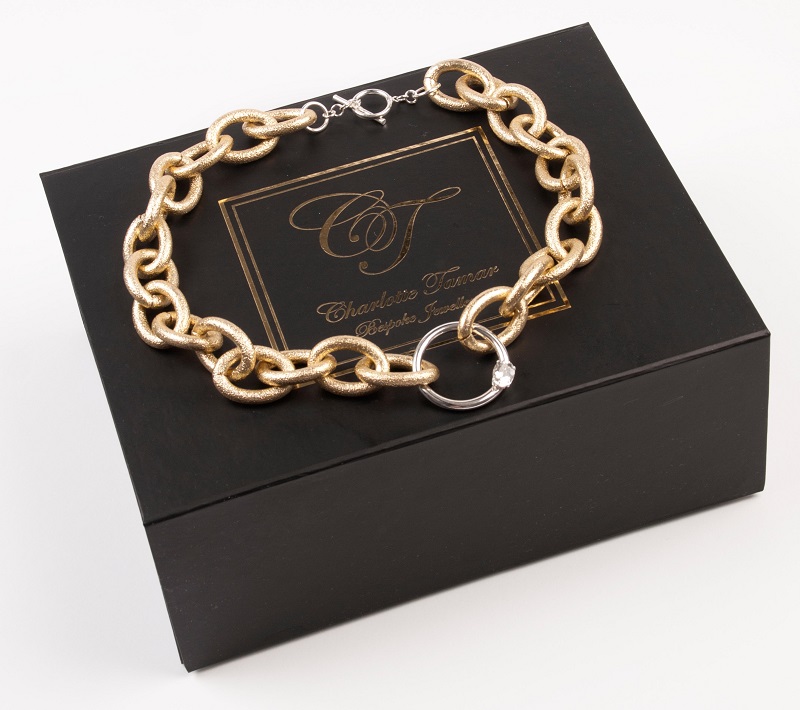
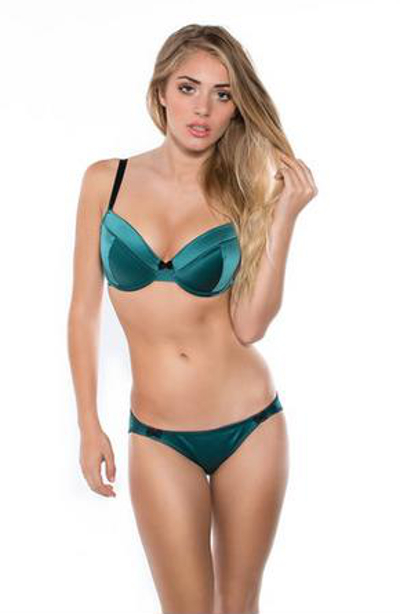


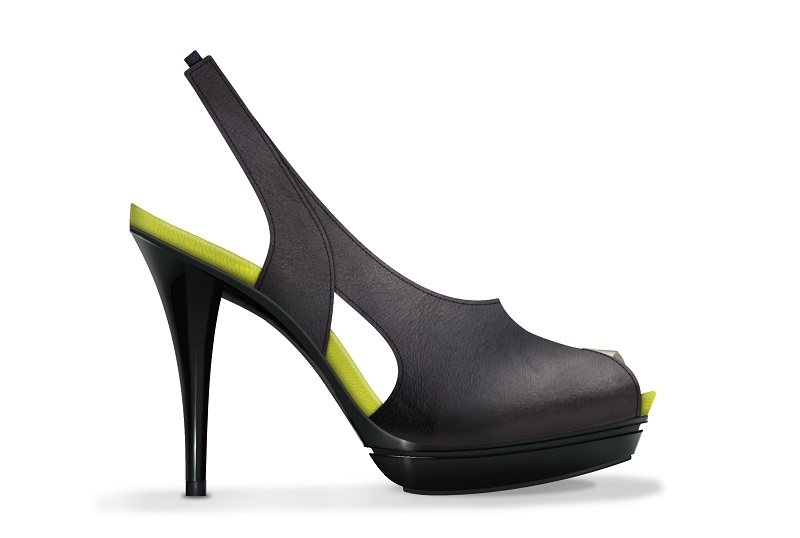
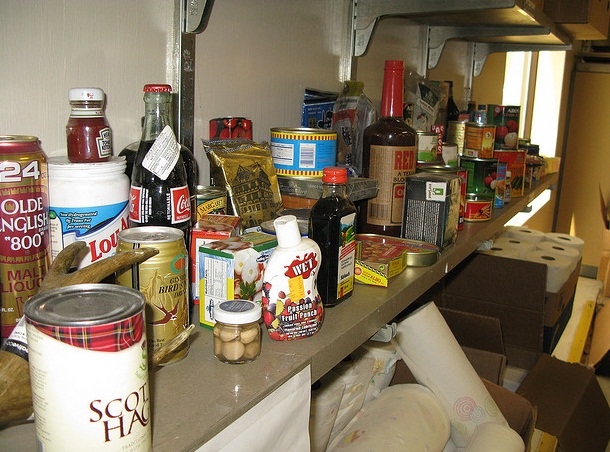

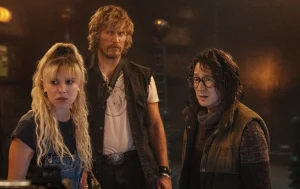
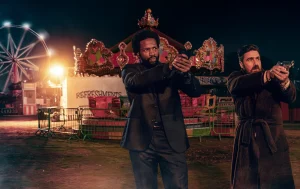
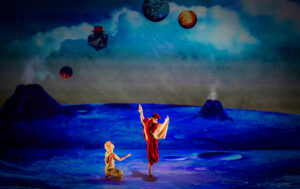
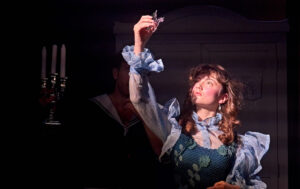
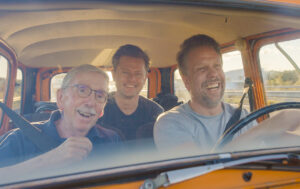
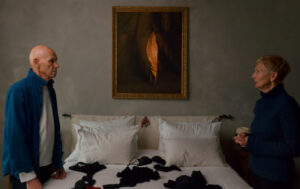
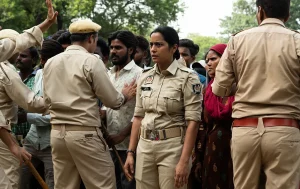

Facebook
Twitter
Instagram
YouTube
RSS